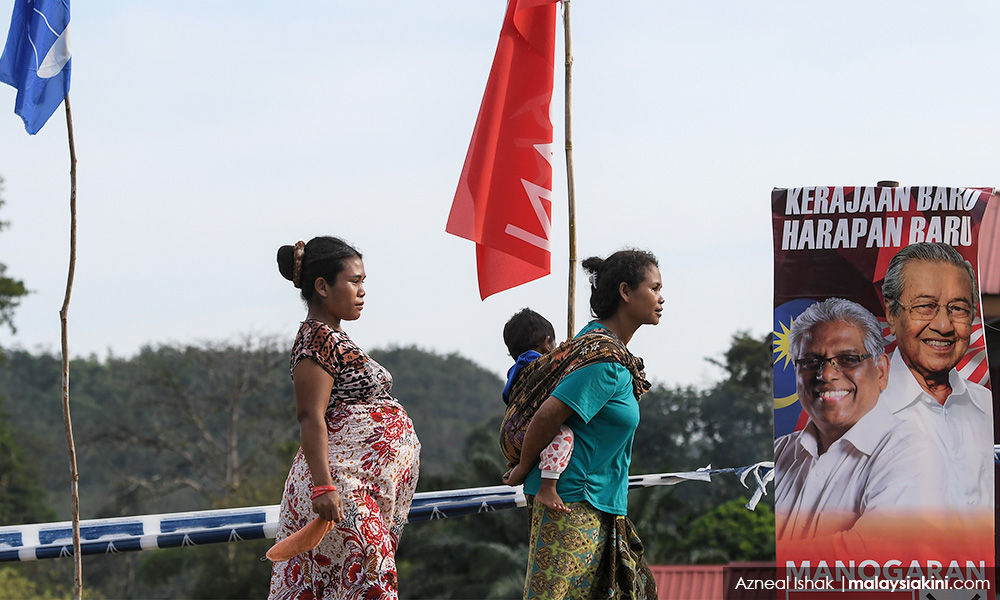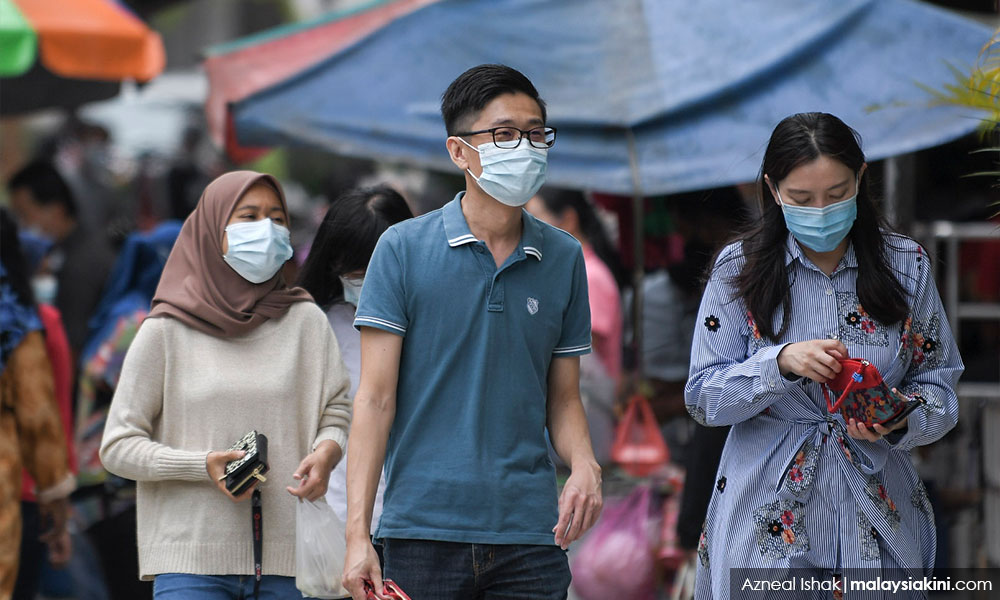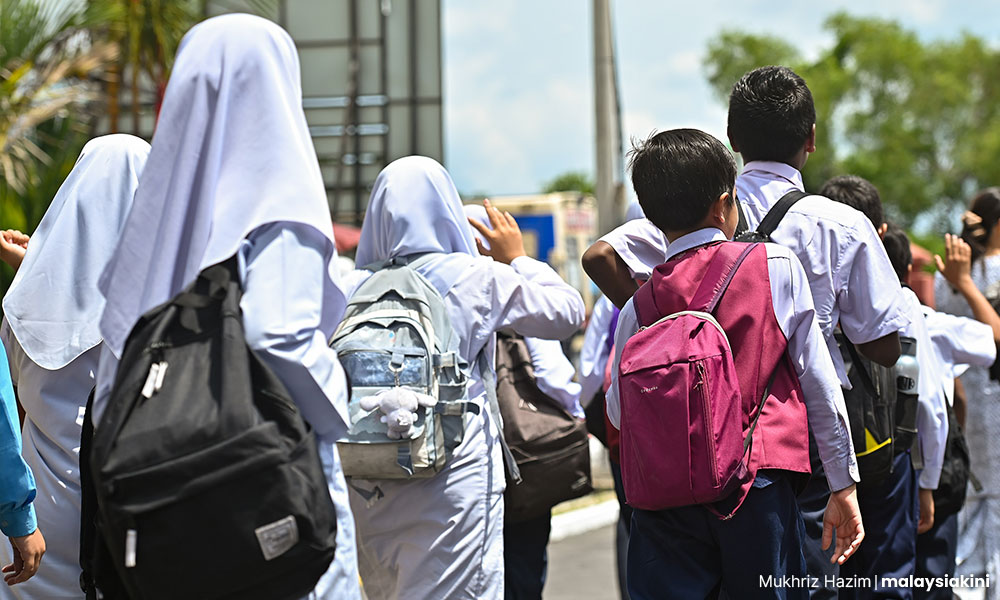Social media users had a lot to say about the Bumiputera Economic Congress and the government initiatives announced by Prime Minister Anwar Ibrahim.
The reactions to the congress varied depending on the social media platform and the language medium.
On Instagram, for instance, an English news article about bumiputera owning only one out of 97 listed companies drew this comment: “You have to work for it, not by comparing races.”
On TikTok, a suggestion in the congress that 30 percent of goods in hypermarkets should be bumiputera products attracted varied reactions:
“Why 30 percent? Just make it 100 percent happy?”
“Buat macam mana pun kalau malas apa pun tak jadi.” (No matter what, if you are lazy, nothing will materialise.)
“Tapi Melayu pun kurang sokong barangan tempatan.” (But even the Malays do not fully support local products.)
The deputy prime minister suggested the implementation of a Bumiputera Economic Transformation blueprint. He said this was not to replace the New Economic Policy (NEP) but to serve as a guide for a more progressive approach to the bumiputera policy and to reduce the socioeconomic gap.
But according to the Bumiputera Development Transformation or TPB 2030 website, “Bidang Transformasi Ekonomi Bumiputera” (Bumiputera Economic Transformation or Beta) is one of the components of TPB 2030, which was launched in 2021 to explore potential sectors for increased bumiputera participation.
Yes, a dizzying array of acronyms!
My own position on the development of the bumiputera economy is for the government to continue what it is doing but not for the long term – only until the underclass among the bumiputera, ie the ethnic Malays and the natives of Sabah and Sarawak, do not need such targeted affirmative action policies any longer.

Meanwhile, concrete measures have to be taken to help the people, regardless of ethnicity, escape the vicious cycle of poverty.
For this to happen, the government needs to involve the underclass in its planning.
Not inclusive
The NEP, launched in 1971, has proven ineffective in eradicating poverty. There was hope for the congress to offer new ideas for the government to come up with fresh policies for the bumiputera. Unfortunately, the congress was mainly attended by the elite.
The government believes its policies are for the benefit of the people. But its policymaking process and its approach to gathering ideas does not appear to involve all classes of the people.
If the proposed Beta aims to reach those left behind, the transformation process has to include their needs and opinions.
Last year, the Statistics Department reported that in 2022 the median monthly household income of the bumiputera was the lowest compared to two other major ethnic groups.
The bumiputera figure stood at RM5,793 compared to the Chinese at RM8,167 and the Indians at RM6,627.
Bank Muamalat lead economist Afzanizam Rashid pointed out that the income ratio between the Chinese and the Malays had widened from 1:0.738 in 2014 to 1:0.709 in 2022.

The inequality gap among the bumiputera remains high. For example, bumiputera-majority Sabah recorded a 19.5 percent poverty rate, the highest in the country – even though the territory’s median household income of RM5,745 was not the lowest in the country (Statistics Department).
What’s the difference?
After examining the resolutions at the congress, a question cropped up in my mind: what was the difference between this congress and the government’s policy of upholding the “bumiputera agenda” in the past?
The congress still adopted a top-down approach. It is uncertain if such an approach can ever benefit the underclass. The issues at the congress were discussed and decided by the elites and then presented to politicians for the “benefit” of the people.
The inclusivity that the prime minister has promoted was commendable: we saw less rhetorical discussion about bumiputera rights. Instead, the congress focused on cooperation to develop the bumiputera economy.
In his closing speech, the PM extended his inclusive approach: it is not just government-linked firms and government-linked investment companies that are responsible for development but also “selected” private companies.
What’s more, a Bumiputera Economic Council was formed, to be chaired by the PM. Deputy Prime Minister Ahmad Zahid Hamidi will chair a monitoring committee while Economy Minister Rafizi Ramli will head an implementation committee.
But Zahid carries baggage – the dropped corruption charges against him – and doubts hover over his ability to carry out any serious “monitoring”.
The role of the Bumiputera Agenda Steering Unit (Teraju) and the committee is also unclear.
Problematic incentives
The seventh resolution – on education and human capital – talks about enhancing the quality of national schools. One strategy is to create a special excellence fund to help less fortunate students.

Another strategy from the first resolution – to reorient the bumiputera mindset to prioritise education – is to make incentives more targeted. For example, incentives can be linked to attendance at school or a decision to resume studies.
But a special fund and more targeted incentives are problematic. It is a carrot-and-stick approach: students will be forced to go to school or resume their studies for the sake of assistance.
The presence of students who are not interested in their studies will affect other students in class who do want to study.
Social security
What was missing from the congress was a specific resolution to strengthen the social safety net.
The absence of a stronger social welfare system not only affects education but will have a bearing on the other resolutions passed. This shows the weaknesses of the resolutions, which are supposed to guide policymakers, already predisposed to a top-down approach.
Ultimately, this congress was not about making policies. It was more of a discussion among corporate leaders who claimed to “represent” bumiputera voices on what kind of policies they want the government to formulate.
The efforts to develop the bumiputera economy should be welcomed because they are needed: the percentage of bumiputera, especially the underclass, who are left behind remains high.
But if we want tangible change, we’ll need a different approach – one that is more supportive of the underclass and more inclusive in helping low-income folk, regardless of ethnicity, escape from the clutches of poverty. - Mkini
SAFIYUDDIN SABRI is a political science student doing an internship with Aliran. The above was first published on Aliran.
The views expressed here are those of the author/contributor and do not necessarily represent the views of MMKtT.




No comments:
Post a Comment
Note: Only a member of this blog may post a comment.